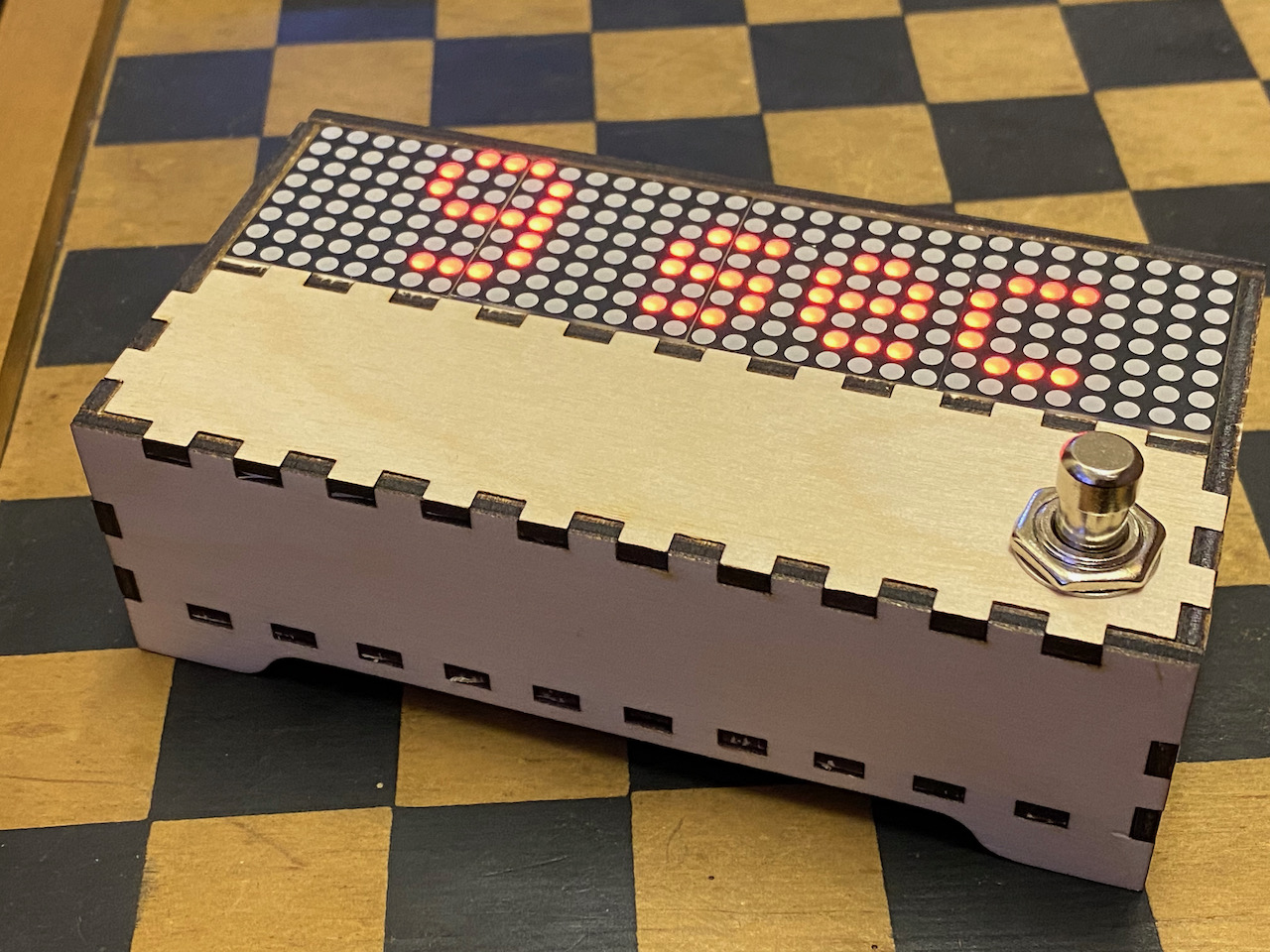tunbury.org
3d Printed Train

Creating a new OO train body drawn from scratch in Fusion 360 to minic the original damaged version.
Foot Operated Timer

At the end of a quarter peal there is always the question of how long it took and whether anyone really noted the start time. Mike proposed a foot operated timer.